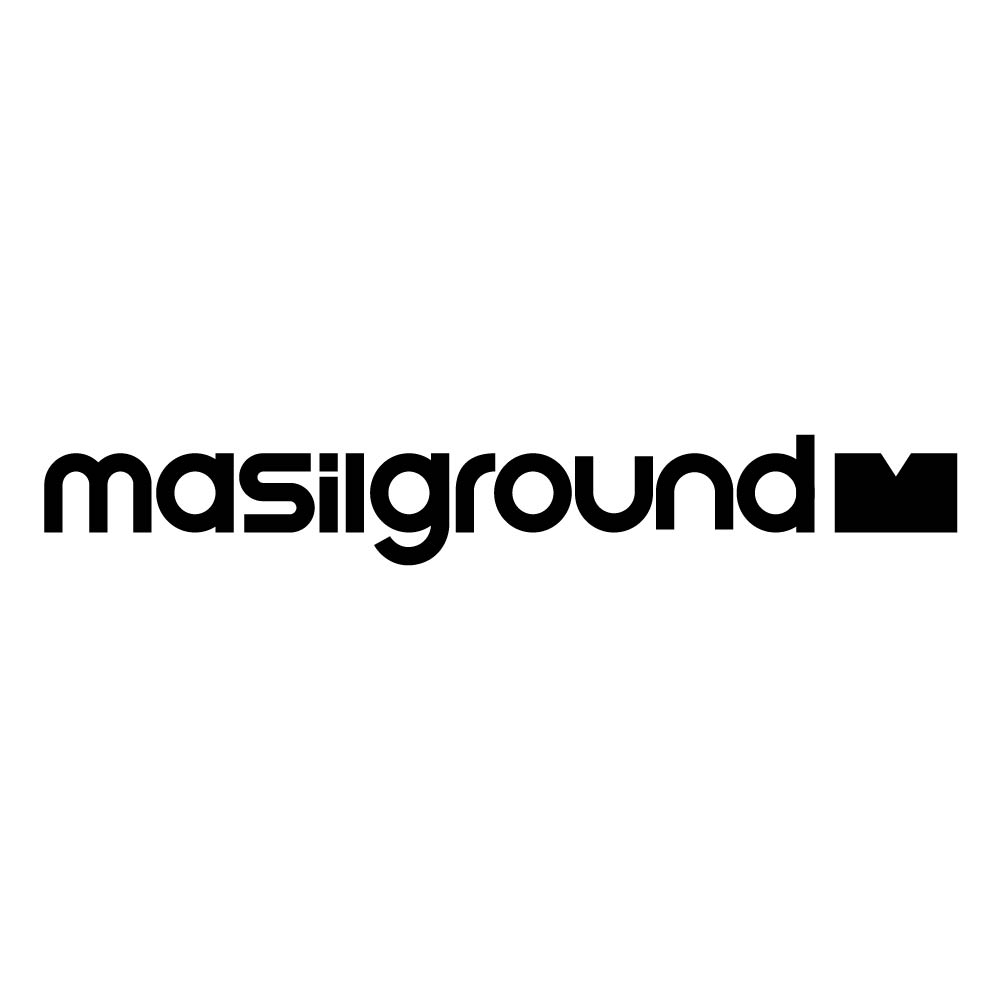
MoMA is the abbreviation for Museum of Modern Aluminum. The project originated from a group of ambitious clients with the goal of reviving the significance of aluminum in Thailand. Thailand was once the largest aluminum manufacturer in Southeast Asia at the end of the 20th century. Its diverse and abundant aluminum profiles not only satisfied the local market but were once known for exporting to overseas markets. However, the Asian Financial Crisis hit without warning in 1997. This prompted Thailand's aluminum industry to sell aluminum profiles at low prices to hardware markets around the country in order to survive, resulting in the clutters of advertising signs, balcony fences, and ground floor extensions that make up the present-day Bangkok streetscape. MoMA was born out of such an environment. It is located at the busiest traffic hub on the outskirts of Bangkok, where heavy traffic has led to a variety of commercial signs lining Ratchaphruek Road. The main roads lead to The Grand Palace, Wongwian Yai, Bangkok University, and Ko Kret, the only island in Bangkok. More than a decade ago, fireflies populated Ko Kret, making the island a natural retreat for Bangkokians. HAS design and research wanted MoMA to serve not only as a public space but also as a getaway for busy urban dwellers. The building extends the natural landscape of Ko Kret Island to the project site. During the day, MoMA is a dandelion, with its overhanging elements swaying in the wind, bringing softness and lightness to the busy Ratchaphruek Road; at night, MoMA transforms into a firefly, adding a sense of nature and peacefulness to the highly commercialized Ratchaphruek Road. MoMA not only uses aluminum strips as display items, but also allows them to continue in the architecture, the interior, the landscape, as well as the lighting and furniture, creating a sense of totality inside and outside. The façade is clad with tens of thousands of aluminum strips, each with a slightly different color and texture, just like the feathers of a dandelion. The aluminum strips, combined with LED lighting, extend from the front façade to the two side façades, and then straight through the "tunnel" space on the west side, filtering and dampening the noise of the external environment and guiding visitors to the quiet exhibition place. The aluminum strips on the façade not only provide a variety of lighting functions, but also shade the interior from excessive sunlight to maintain a comfortable interior environment. The flexibility of the exhibition space can meet a variety of display, reception, and activity needs. On the top floor, the enclosed landscape resembles a floating island with seasonal plants, creating an urban ecological site for fireflies to flourish. The design process of MoMA began with the study of aluminum signboards commonly seen on the streets, and then used aluminum as an element to link the entire building. Through the investigation and research of aluminum profiles, a distinct architectural texture is created, and a new sense of vernacular is discovered in Thailand's concrete jungle.

MoMA는 현대 알루미늄 박물관의 약자이다. 이 프로젝트는 태국에서 알루미늄의 중요성을 되살리고자 하는 야심 찬 건축주에 의해 시작됐다. 태국은 20세기 말, 동남아시아에서 가장 큰 알루미늄 제조국이었다. 다양하고 풍부한 알루미늄 프로파일은 한때 현지 시장을 넘어 해외 시장으로 수출하는 것으로 유명했다. 그러나 1997년 아시아 금융 위기가 예고 없이 닥쳤고, 이로 인해 태국의 알루미늄 산업은 생존을 위해 전국의 하드웨어 시장에 알루미늄 프로파일을 저렴한 가격에 판매하게 되었다. 그 결과 광고 간판, 발코니 울타리 및 1층 확장이 오늘날 방콕의 어수선한 거리 풍경을 구성하게 되었다.
MoMA는 방콕 외곽에서 가장 번화한 교통 허브에 위치하고 있으며, 교통량이 많아 라차프루엑 길(Ratchaphruek Road)을 따라 다양한 상업 표지판이 세워져 있다. 주요 도로는 방콕 왕궁, 웡위안야이 (Wongwian Yai), 방콕 대학교 및 방콕의 유일한 섬인 꼬끄렛(Ko Kret)으로 이어진다. 10여 년 전에 반딧불이가 꼬끄렛에 이주하여 방콕 사람들에게 자연스러운 휴양지가 되었다. 건축가는 MoMA가 공공 공간뿐만 아니라 바쁜 도시 거주자들을 위한 휴양지 역할을 하기를 원했다. 건물은 꼬끄렛 섬의 자연 경관을 프로젝트 부지까지 확장한다. 낮의 MoMA는 민들레다. 돌출된 요소가 바람에 흔들리며 분주한 라차프루엑 길에 부드러움과 가벼움을 선사한다. 밤이 되면 MoMA는 반딧불이로 변신하여 고도로 상업화된 라차프루엑 길에 자연적인 느낌과 평화로움을 더한다. MoMA는 알루미늄 스트립을 전시 품목으로 사용할 뿐만 아니라 건축, 인테리어, 조경, 조명, 가구에까지 사용하여 내부와 외부의 완성도를 높인다. 파사드는 약간 다른 색상과 질감을 가진 수만 개의 알루미늄 스트립으로 덮여 민들레의 깃털처럼 보인다. LED 조명과 결합된 알루미늄 스트립은 전면 파사드에서 양면 파사드로 연장된 다음 서쪽의 "터널" 공간을 통해 직선으로 연장되어 외부 환경의 소음을 필터링 및 감쇠하고 방문객을 조용한 전시회로 안내한다. 파사드의 알루미늄 스트립은 다양한 조명 기능을 제공할 뿐만 아니라 과도한 햇빛으로부터 실내를 가려 쾌적한 실내 환경을 유지한다. 전시 공간의 유연성은 다양한 전시, 리셉션 및 활동 요구를 충족시킨다. 최상층의 폐쇄된 경관은 제철 식물이 있는 떠 있는 섬과 유사하여 반딧불이가 번성할 수 있는 도시 생태계를 조성한다.
MoMA의 디자인 과정은 거리에서 흔히 볼 수 있는 알루미늄 간판에 대한 연구에서 시작하여 건물 전체를 연결하는 요소로 알루미늄을 사용했다. 알루미늄 프로파일에 대한 조사와 연구를 통해 독특한 건축적 질감이 만들어지고 태국의 콘크리트 정글에서 토착어의 새로운 감각이 발견된다.












Architects HAS design and research
Location Nonthaburi, Thailand
Site area 250㎡
Building area 200㎡
Gross floor area 400㎡
Building scope 4F
Building to land ratio 70%
Floor area ratio 160%
Construction period 2021 - 2022
Completion 2022
Principal architect Jenchieh Hung, Kulthida Songkittipakdee
Design team Jenchieh Hung, Kulthida Songkittipakdee, Jiaqi Han, Qin Ye Chen
Structural engineer Goldstar Metal Co., Ltd.
Facade engineer AB&W Innovation Co., Ltd
Lighting electrical engineer Neowave Technology
Construction SL Window Co., Ltd.
Landscape design TROP : terrains + open space
Lighting design Light Is
Client Ms. Pinitsoponpun
Photographer W Workspace
해당 프로젝트는 건축문화 2022년 7월호(Vol. 494)에 게재되었습니다.
The project was published in the July, 2022 recent projects of the magazine(Vol. 494).
July 2022 : vol. 494
Contents : RECORDS I LIVE ALONE AND TOGETHER 나 혼자, 그리고 같이 산다 “SPACE COORDINATOR”, AN EXPERIMENTAL AND INNOVATIVE DISCOURSE THAT REVOLUTIONIZES THE CITY 도시를 새롭게..
anc.masilwide.com
'Architecture Project > Cultural' 카테고리의 다른 글
| BIODOME SCIENCE MUSEUM (0) | 2022.09.20 |
|---|---|
| CULTURAL CENTER - FLYING ROOF (0) | 2022.09.19 |
| Camerino Academy of Music (0) | 2022.09.02 |
| RAINBOW PAVILION (0) | 2022.08.16 |
| SPAINISH PAVILION at EXPO 2020 DUBAI (0) | 2022.08.12 |
마실와이드 | 등록번호 : 서울, 아03630 | 등록일자 : 2015년 03월 11일 | 마실와이드 | 발행ㆍ편집인 : 김명규 | 청소년보호책임자 : 최지희 | 발행소 : 서울시 마포구 월드컵로8길 45-8 1층 | 발행일자 : 매일







